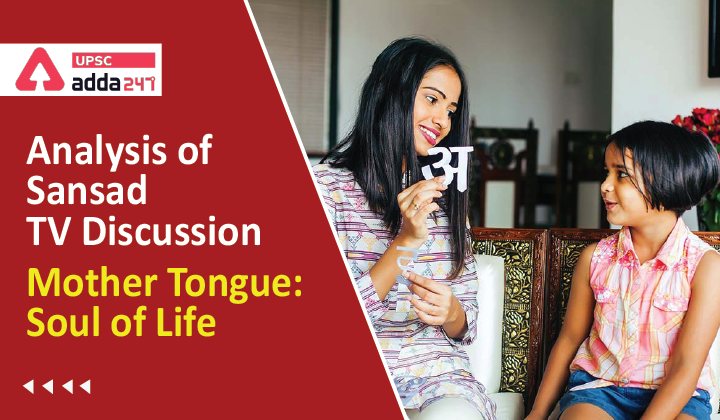Table of Contents
”Mother Tongue: Soul of Life”
Relevance
”GS 1: Indian Culture”
”GS 2: Government Policies & Interventions”
Introduction
- February 21 was International Mother Language Day. It has been observed since 1999 to promote linguistic and cultural diversity and multilingualism.
- The theme of this year’s International Mother Language Day is focused on the use of Technology for Multilingual Learning.
- Of the world’s 6,000 languages, 43% are estimated as endangered, according to the UN. On the other hand, just 10 languages account for as many as 4.8 billion speakers — over 60% of the world population.
- Globally, English remains the most widely spoken language with 1.13 billion speakers in 2019, followed by Mandarin with 1.17 billion, according to the online database Ethnologue. Hindi is third with 615 million speakers while Bengali is seventh with 265 million.
Why February 21
- UNESCO declared International Mother Language Day in 1999, to commemorate a 1952 protest against West Pakistan’s imposition of Urdu as the official language of East Pakistan (present-day Bangladesh).
- Police opened fire on demonstrating Dhaka University students and “some people were killed”. When thousands thronged the university the next day, police fired again, killing more people.
- In Bangladesh, since 1953, February 21 is observed as Ekushe Day, after the Bengali word for twenty-one.
How does Mother Tongue Shapes a Personality?
- Mother tongue has a very powerful impact in the formation of the individual.
- A child’s first comprehension of the world around him, the learning of concepts and skills and his perception of existence, starts with the language that is first taught to him – his Mother Tongue.
- When a person speaks their Mother Tongue, a direct connection establishes between heart, brain and tongue Linguistic diversity is increasingly threatened as more and more languages disappear.
India’s Linguistic Diversity
- Globally around 40 per cent of the population does not have access to an education in a language they speak or understand.
- According to the Language Census India is home to 19,500 languages or dialects, of which 121 languages are spoken by 10,000 or more people in our country.
- National Education Policy released in 2020 has strongly advocated imparting early education in regional language or mother tongue.
Constitutional Provision
- Article 30 (1) of the Constitution of India provides a fundamental right to linguistic minorities to establish and administer educational institutes of their choice.
- The Constitution of India (Article 350 A) provides that every state must provide primary education in a mother tongue and also provide for the appointment of a ‘Special Officer’ for linguistic minorities (Article 350 B), who is responsible to investigate matters relating to linguistic minorities and report them to the President.
The consequence of neglecting native languages
- It results in the loss of knowledge accumulated over time in respective cultures, of which languages are a manifestation.
- With a multiplicity of languages and a rich spectrum of dialects, we have regions which are repositories of knowledge much of which stands imperilled today.
- Culture and language are the two sides of the same coin. They embody rich knowledge and practices accumulated over a long period. Extinction of a language results in the loss of precious legacy.
- Development of the mindset of looking down upon one’s mother tongue and wearing the linguistic badge of competence in English as a false sign of superiority.
Conclusion
Mother tongue is the first window of an infant to the world and there is enough evidence suggesting that strong literary skills in the first language spoken at home significantly help in improving academic performance and even facilitate learning a second language. More importantly, the richness of our diverse cultures can only be preserved through the promotion of mother languages.



 TSPSC Group 1 Question Paper 2024, Downl...
TSPSC Group 1 Question Paper 2024, Downl...
 TSPSC Group 1 Answer key 2024 Out, Downl...
TSPSC Group 1 Answer key 2024 Out, Downl...
 UPSC Prelims 2024 Question Paper, Downlo...
UPSC Prelims 2024 Question Paper, Downlo...





